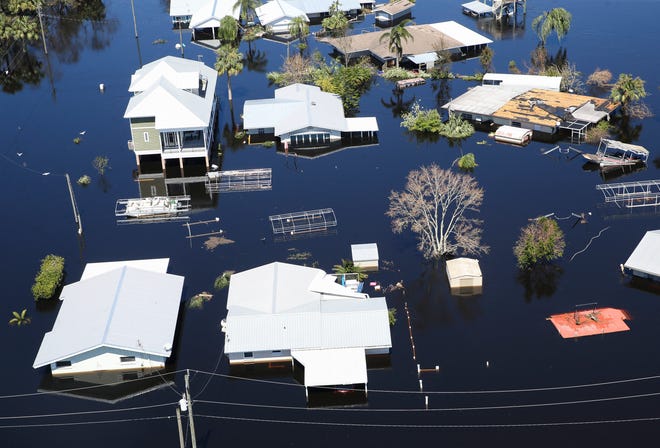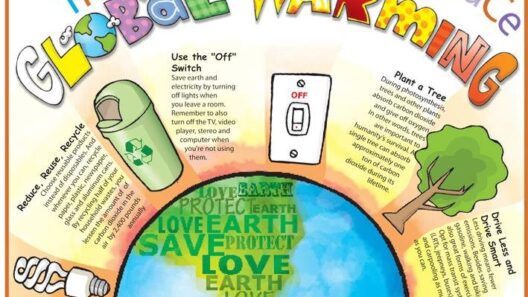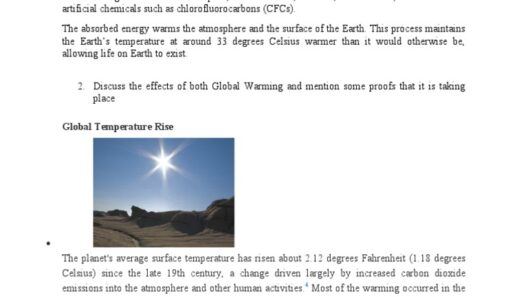Global warming has become a fixture in contemporary discussions about climate change, and it compels us to reevaluate our understanding of nature’s erratic behaviors. As temperatures rise, the atmosphere retains more moisture, which leads to an intriguing and critical question: Can global warming cause hurricanes? This inquiry extends beyond mere speculation; it ventures into the realm of scientific inquiry and societal responsibility. The intersection between global warming and hurricanes offers a profound lens through which to examine our planet’s changing dynamics.
Understanding hurricanes necessitates a foundational grasp of how they form and the environmental conditions that nurture their development. These colossal storm systems derive their energy from warm ocean waters—a phenomenon increasingly influenced by rising global temperatures. The warming of our seas generates a fertile breeding ground for tropical cyclones. This correlation compels scientists to investigate the potential for an increase in hurricane frequency, intensity, and longevity, raising concerns that everyone must heed.
Exploring the Waters: The Science of Hurricane Formation
Hurricanes, or tropical cyclones, arise over warm ocean waters, typically when surface temperatures exceed 26.5 degrees Celsius (approximately 80 degrees Fahrenheit). At this threshold, the rich warm surface water evaporates into the atmosphere, enriching it with moisture. This process creates instability, and as warm air ascends, cooler air rushes in to replace it, fueling the cyclone’s development.
In essence, the energy derived from these zealous oceans dictates the strength of hurricanes. As global temperatures ascend, numerous studies have indicated a parallel rise in sea surface temperatures, thereby potentially enhancing the vigor of hurricanes. Higher temperatures lead to the amplification of moisture in the atmosphere, which can result in increased rainfall and storm surges. This cycle denotes not just a process but a dire warning signal as climate change continues to reshape our oceans.
The intensity with which hurricanes strike is also a point of concern, as scientific analysis suggests that warmer air holds more moisture. This can culminate in extreme rainfall events, leading to catastrophic flooding. Furthermore, as waters warm, they could extend the duration of hurricanes, allowing them to wreak havoc for prolonged periods. Unpacking this dynamic reveals an unsettling reality: as we warm the planet, we may very well be amplifying the exceptional might of these tempests.
The Intensifying Storms: The Role of Climate Change
Delving deeper into the implications of global warming on hurricanes illuminates a landscape fraught with uncertainty. Climate change may not only change the frequency and strength of hurricanes but could also affect their geographical patterns. As ocean temperatures fluctuate, certain regions may become more susceptible to cyclone activity than others. Places once deemed relatively safe from hurricanes could find themselves on the frontlines of nature’s fury.
Researchers are continuously analyzing historic hurricane data to discern patterns linked to climate change. While definitive predictions are challenging, many models indicate an upward trend in hurricane intensity since the late 20th century. This heightened ferocity is particularly discernible in storms that achieve Category 4 and 5 ratings, suggesting that while the total number of hurricanes may not dramatically increase, the more potent storms carry the potential for unprecedented destruction.
Moreover, a phenomenon known as “rapid intensification” has been documented with increasing frequency. This occurs when storms strengthen quickly, raising concerns about their unpredictability and the resulting difficulties in forecasting their trajectories. The escalating intensity of storms sets the stage for more significant impacts on vulnerable coastal communities, necessitating a paradigm shift in disaster preparedness and resilience strategies.
The Sociopolitical Implications: The Call for Environmental Stewardship
The connection between global warming and hurricanes invites an extensive examination of not merely the scientific but also the social implications. As the potential for hurricanes to become more catastrophic looms, so too does the imperative for individuals and governments alike to take action. Environmental stewardship becomes paramount; eradicating carbon emissions, investing in renewable energies, and promoting sustainable practices can serve as countermeasures to mitigate impending climatic doom.
Moreover, the discourse surrounding climate justice is vital. Low-income communities and marginalized populations often bear the brunt of climate-related disasters. These groups frequently lack the resources, both wealth and infrastructure-wise, to recuperate adequately from hurricanes or to adapt to changing environmental realities. Addressing the escalating disparities linked to climate change is essential for building societal resilience against these natural disasters.
In addition to the ethical obligations we have to our fellow citizens, there exists a broader call for global collaboration. The international community must unite in combating climate change. Hurricane season is not an isolated phenomenon but rather an integral part of the environmental tapestry that stitches together all nations. Failure to act collectively can yield catastrophic consequences that transcend borders, underscoring the significance of uniting to safeguard our planet.
Conclusion: The Impending Future of Hurricanes in a Warming World
As we engage with the complexities of climate change, we find ourselves at a precipice. The link between global warming and hurricanes is not merely an academic exploration; it is an urgent narrative that intertwines the fates of ecosystems, communities, and economies. A shift in perspective is necessary—a movement from passive observation to active engagement. Amplifying our understanding of these forces propels us towards practical solutions. No longer can we afford to dismiss the ramifications of our actions. Instead, we must channel our curiosity and concern into tangible strategies that prioritize sustainability and resilience in the face of impending storms.






